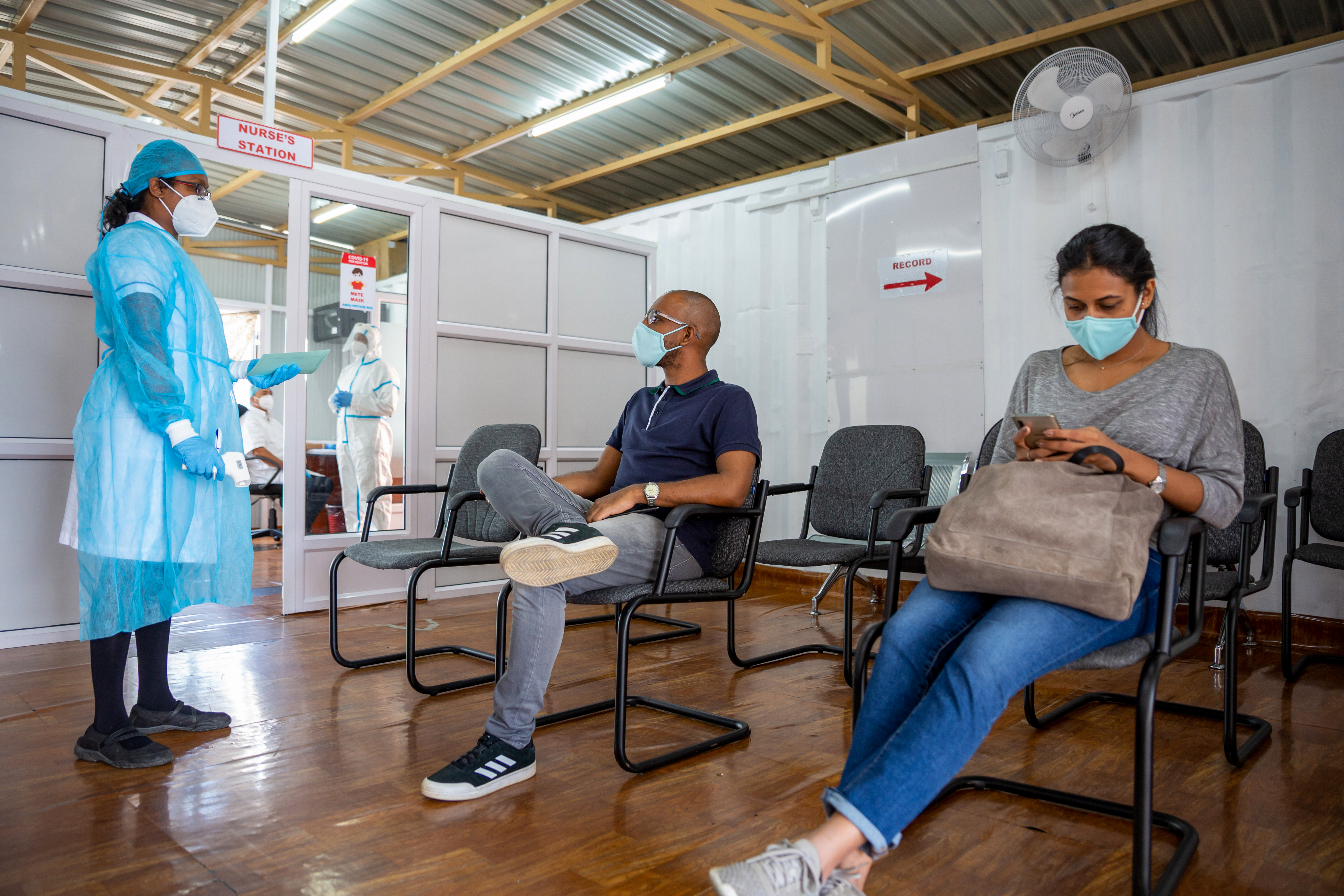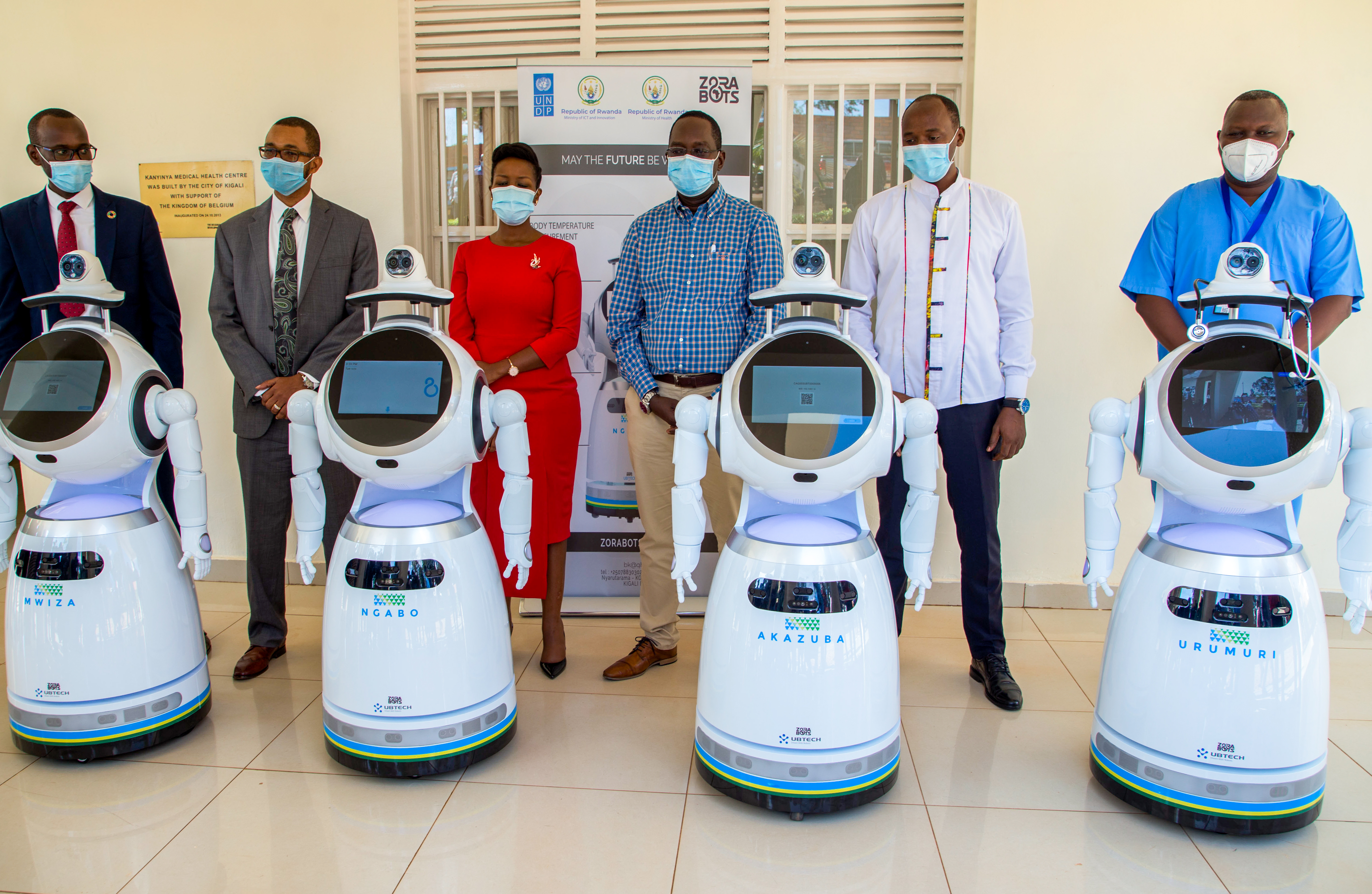COVID-19 pandemic
COVID-19 Pandemic Response in Africa
Humanity needs leadership and
solidarity to defeat the coronavirus
The COVID-19 pandemic is the defining global health crisis of our time and the greatest challenge we have faced since World War Two. Since its emergence in Asia late 2019, the virus has spread to every continent and cases are still rising daily.
The rapid development of COVID-19 vaccines offers great hope that the devastating pandemic can be overcome, but everyone must be reached everywhere, as quickly as possible. In many parts of the world, countries are still racing to slow the spread of the disease by testing and treating patients, carrying out contact tracing, limiting travel, quarantining citizens, and cancelling large gatherings such as sporting events, concerts, and schools.
UNDP COVID-19 response in Africa
As every country needs to act immediately to respond, vaccinate and recover. The UN system supports countries through each stage, with a focus on the most vulnerable. Drawing on our experience with other outbreaks such as Ebola, HIV, SARS, TB and malaria, as well as our long history of working with the private and public sector, UNDP helps countries to urgently and effectively respond to COVID-19 as part of its mission to eradicate poverty, reduce inequalities and build resilience to crises and shocks.
“African people and countries have shown not only resilience to the COVID-19 crisis but in many areas have made headways towards innovative solutions and recovery. Their experience in dealing with disease outbreaks, such as polio and Ebola, has turned to advantage in terms of preparedness, response and vaccination roll-out capacity.
Investing in Africa’s assets and capacities, through technology and free-trade (AfCFTA), will lead to improved solutions for the continent and beyond. Working with diverse partners, especially from Africa, is essential for the post-COVID-19 future.” – Ahunna Eziakonwa

In the Africa region, UNDP promptly reacted to the COVID-19 crisis by repurposing close to US$200-million funding within a month of the pandemic being declared. Actions for over $217 million have been delivered across 46 countries and over $300-million are mobilized for 2021.
UNDP seized and created new opportunities to empower governments and people responding to the COVID-19 crisis. UNDP played a critical role in supporting African governments in sourcing and procuring PPEs, building isolation centers at the early stages of the pandemic and strengthening the capacity of the Africa CDC and national partners in preparedness and response, and supports vaccine procurement. UNDP created platforms for joint donor funding mechanisms, including COVID-19 Response Funds, and brought actors together towards united responses.
UNDP supported innovative African solutions using technology for effective infectious waste management or deploying smart anti-epidemic robots in health centres. Special attention was brought to empowering women and youth, particularly in the informal sector and SMEs. This was achieved through cash transfers, creating linkages between the informal rural farmers and markets, connecting them with consumers through e-commerce platforms, such as Jumia Food. UNDP paid specific attention to more vulnerable population groups and, for example, provided 2,500 people living with disability and over 2,700 repatriated ex-combatants with hygiene kits in Mali.

UNDP’s work in Africa also focused on broadening stakeholder engagement, strengthening the voices of the poor through technology, and engaging youth in preventing outbreaks and fostering prompt recovery for countries’ systems and economies through the AccLabs and Youth Connekt.
To support African governments in making the right decisions and address the long-term impacts of the pandemic, UNDP undertook undertook socio-economic impact assessments and a pioneering research modelling potential long-term impacts of the crisis and future scenarios.
The pandemic has changed the way we think of development and UNDP is helping some countries in Africa re-imagine their post-COVID future. The shift to renewable energy presents huge opportunities for fossil-fuel dependent African countries. Technology can be a catalyst for transforming African economies and service delivery and intra-regional trade, through the AfCFTA, is also a significant opportunity for African countries and their people to quickly recover from the pandemic and build forward better.
“African people and countries have shown not only resilience to the COVID-19 crisis but in many areas have made headways towards innovative solutions and recovery. Their experience in dealing with disease outbreaks, such as polio and Ebola, has turned to advantage in terms of preparedness, response and vaccination roll-out capacity.
Investing in Africa’s assets and capacities, through technology and free-trade (AfCFTA), will lead to improved solutions for the continent and beyond. Working with diverse partners, especially from Africa, is essential for the post-COVID-19 future.” – Ahunna Eziakonwa

 Locations
Locations